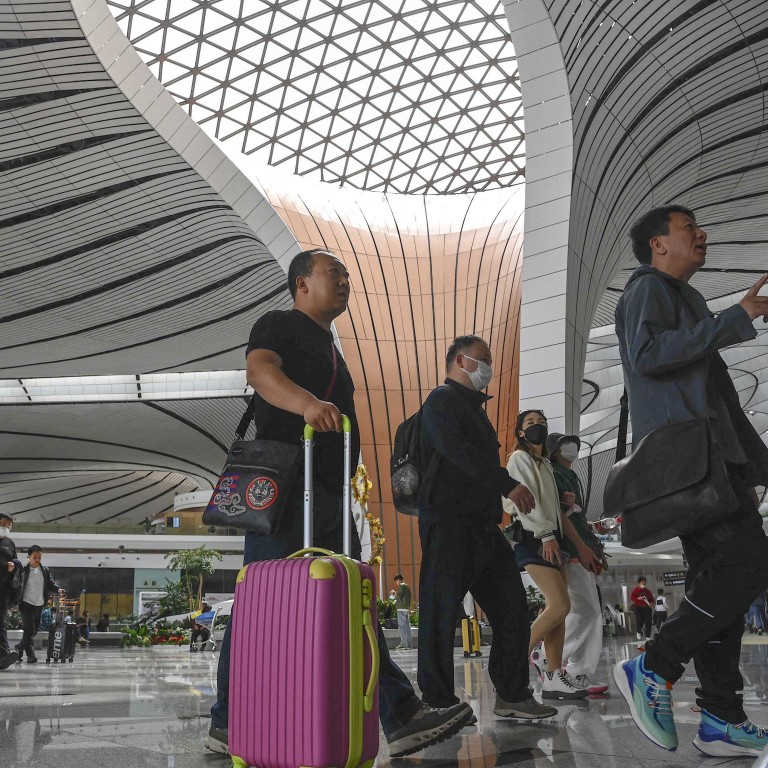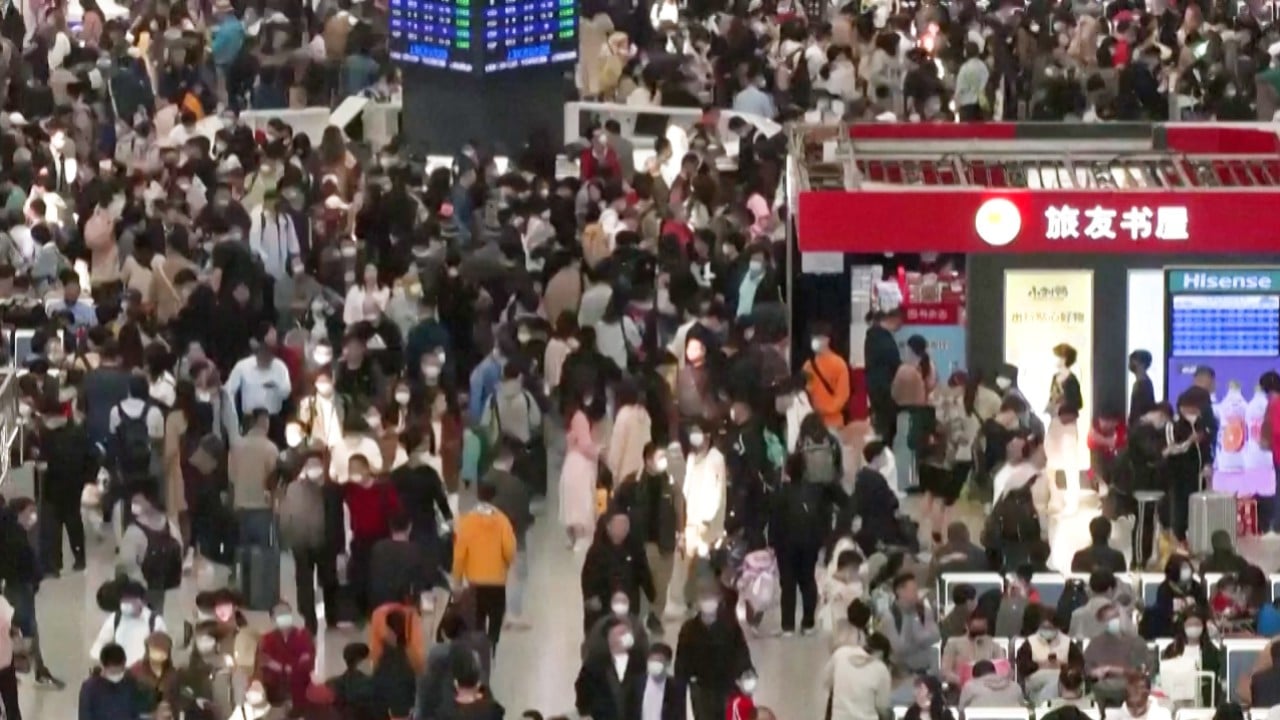
May Day holiday unleashes tourism frenzy as Chinese tourists throw off the shackles of the Covid-19 era
- Frustrated by three years of restrictions, Chinese travellers flew further afield and in far greater numbers than at any time since 2019
- The travel bonanza will have given a welcome boost to consumption as Chinese holidaymakers tend to spend big, according to a tourism analyst
The first long national holiday since Beijing abandoned its tough pandemic restrictions saw Chinese tourists flying an average distance of 1,638km, according to travel giant Trip.com Group.
Equivalent to a trip from Shanghai in eastern China to Inner Mogolia’s Hohhot, that is by far the highest in the last three years and just 2 per cent shy of 2019, before the novel coronavirus first emerged.
The travel bonanza will have given a welcome boost to consumption, according to Peng Han, director of the strategic research centre of the Ctrip Research Institute.
“The eagerness for a long-haul holiday among Chinese travellers has been unleashed during this year’s Labour Day holiday,” said Peng.
Known as the Labour Day or May Day holiday, the five-day break which ended on Wednesday, marked the first days-long break in China since Beijing shelved its zero-Covid strategy in December. It is also often referred to as “golden week”.
The domestic tourism market, worth an estimated US$1 trillion, was once an important driver of economic growth before Covid-19 curbs including citywide lockdowns kept people at home or at least deterred them from straying far. Overseas travellers from mainland China spent US$255 billion, accounting for 17 per cent of global outbound travel expenditure, in 2019, according to data from the United Nations World Tourism Organisation.
The average price of an outbound flight tickets was 2,104 yuan (US$304.39) during the May Day break, about a third higher than in 2019, as demand outstripped the supply of seats. Some 80 per cent more holidaymakers opted for first class and business class tickets as compared to four years ago. The number of scheduled international departures from China last month was just over a third of the number in April 2019, according to data compiled by HSBC.
Lu Ting, chief China economist at Nomura, predicts that “pent-up demand from wealthy Chinese after the three-year border closure, and some capital flight” will lead to a 90 per cent recovery of the country’s outbound tourism expenditure next year.
As well as those actually jetting off during golden week, plenty more were looking at travel options online. Data from FlightAi, a data and intelligence provider under Ctrip, shows searches for international flights, led by Macau, the United Arab Emirates and the Maldives, soared 60 per cent during the Labour Day holiday from the same period in 2019.


